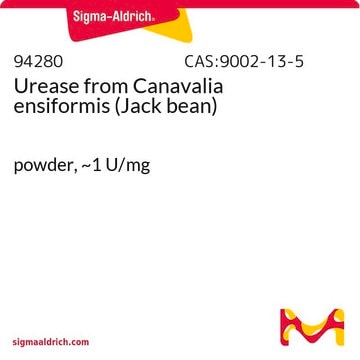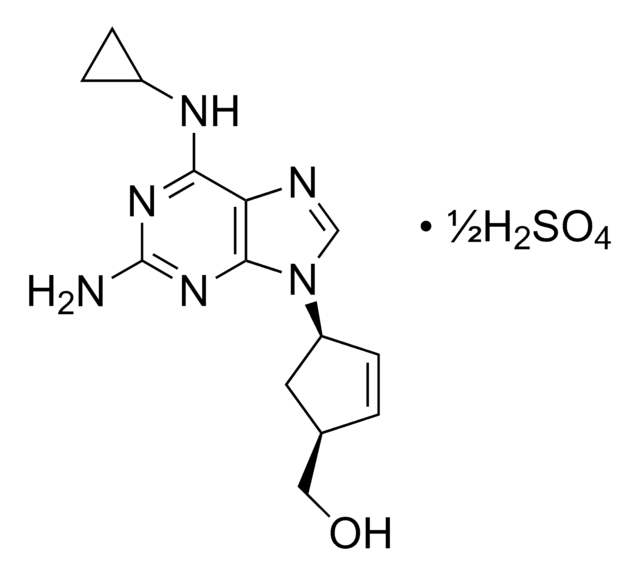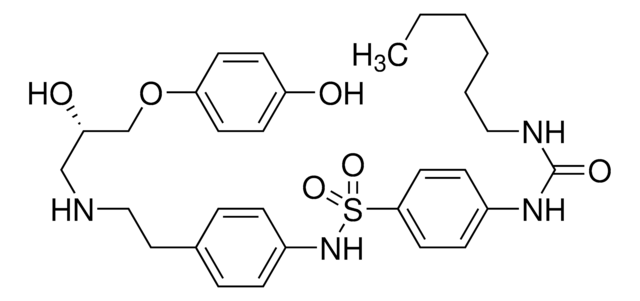A2169
3′-Azido-3′-deoxythymidine
≥98% (HPLC), powder, reverse transcriptase inhibitor
Synonym(s):
AZT, Azidothymidine, ZDV, Zidovudine
About This Item
Recommended Products
product name
3′-Azido-3′-deoxythymidine, ≥98% (HPLC)
Quality Level
Assay
≥98% (HPLC)
form
powder
mp
113-115 °C (lit.)
solubility
H2O: 50 mg/mL
storage temp.
−20°C
SMILES string
CC1=CN([C@H]2C[C@H](N=[N+]=[N-])[C@@H](CO)O2)C(=O)NC1=O
InChI
1S/C10H13N5O4/c1-5-3-15(10(18)12-9(5)17)8-2-6(13-14-11)7(4-16)19-8/h3,6-8,16H,2,4H2,1H3,(H,12,17,18)/t6-,7+,8+/m0/s1
InChI key
HBOMLICNUCNMMY-XLPZGREQSA-N
Gene Information
human ... HIVE1(3095)
mouse ... Slc29a1(63959)
Looking for similar products? Visit Product Comparison Guide
Application
Biochem/physiol Actions
Features and Benefits
Signal Word
Warning
Hazard Statements
Precautionary Statements
Hazard Classifications
Carc. 2 - Muta. 2
Storage Class Code
11 - Combustible Solids
WGK
WGK 1
Flash Point(F)
Not applicable
Flash Point(C)
Not applicable
Personal Protective Equipment
Certificates of Analysis (COA)
Search for Certificates of Analysis (COA) by entering the products Lot/Batch Number. Lot and Batch Numbers can be found on a product’s label following the words ‘Lot’ or ‘Batch’.
Already Own This Product?
Find documentation for the products that you have recently purchased in the Document Library.
Customers Also Viewed
Articles
Modulation of homology-directed repair (HDR) within the context of CRISPR-genome editing has led to the identification of small molecules that enhance CRISPR-mediated HDR efficiency in various cell types.
Modulation of homology-directed repair (HDR) within the context of CRISPR-genome editing has led to the identification of small molecules that enhance CRISPR-mediated HDR efficiency in various cell types.
Modulation of homology-directed repair (HDR) within the context of CRISPR-genome editing has led to the identification of small molecules that enhance CRISPR-mediated HDR efficiency in various cell types.
Modulation of homology-directed repair (HDR) within the context of CRISPR-genome editing has led to the identification of small molecules that enhance CRISPR-mediated HDR efficiency in various cell types.
Our team of scientists has experience in all areas of research including Life Science, Material Science, Chemical Synthesis, Chromatography, Analytical and many others.
Contact Technical Service











